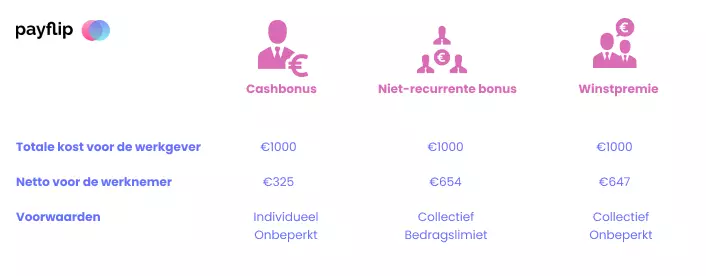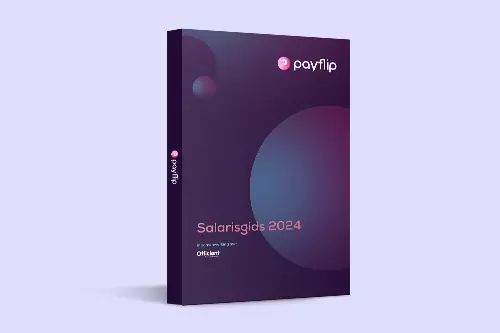Flexible rewarding is still very underused among Belgian SMEs. Many companies are simply insufficiently informed about the possibilities that exist in the field of 'smart rewarding'. We list 8 creative reward methods that can make a world of difference.
1. Intellectual Property
Planning to hire a software developer, designer or marketer? You can consider part of their salary as remuneration for the transfer of their copyrights. The employee is taxed on this at a favourable rate of 15% (with cost deduction even only 7.5%) without any loss of pension rights. Condition: it must concern original works that have a concrete form. It may therefore not be a mere idea.
2. Mobility budget
The mobility budget is a newcomer (since 1 March 2019) and is only being introduced to a limited extent (for the time being). Employees can spend the entire budget that would normally be paid by the employer for a company car on an environmentally friendly company car or - more interestingly - on environmentally friendly means of transport or housing costs. For employers, the introduction of the mobility budget is a budget-neutral operation. A concrete example: an employee who lives within a 5 km radius of work and trades in his BMW1, can now pay his rent (or the interest on his mortgage loan) with a mobility budget of 600 euros, a nice bonus!
3. Non-recurring result-related benefits
Tired of seeing cash bonuses almost completely go up in smoke (read: to the tax authorities)? A good alternative is the result-related benefit. This is a bonus that is linked to the collective results of a company (e.g. turnover), and must therefore be paid to all employees. In concrete terms, a non-recurring bonus that costs you, as an employer, 1,000 euros, leaves a net amount of 654 euros for your employee. Attention: this benefit can be granted to the employee tax-free up to a maximum of 2941 euro.
4. Profit allowances
A profit bonus is similar to the non-recurring result-related bonus. However, there are three important differences: 1. The only condition for a profit bonus is that the company actually makes a profit. 2. In contrast to the non-recurrent bonus, the amount of the bonus is unlimited. 3. As an employer you have to make a deduction of 7% for the tax authorities. In concrete terms, the employee is left with 647 euro when a gross profit bonus of 1000 euro is awarded.

5. Home working expenses
Teleworking or "remote working" is becoming increasingly popular. Teleworkers use internet, electricity, water, etc. at home. To cover these costs, the employer may pay the employee an allowance of 120 Euros per month. This allowance is free of social contributions and taxes. The condition is that the employee works from home on a regular basis.
6. Property at disposal
As an employer, you can provide a home to an employee free of charge. For the employer, all associated costs are deductible. For the employee, this is considered a benefit in kind. The amount of this benefit is determined at a flat rate. The employee is then simply taxed on this amount at the rate of his/her personal income tax.
7. Interest-free or low-interest loan
As an employer, you can offer employees an interest-free or low-interest loan. Just like making a house available, this is considered a benefit in kind for the employee. Every year, the government sets reference rates (depending on the type of loan). When calculating the taxable benefit, the difference between the reference rate and the interest rate allowed by the employer applies.
8. Family allowance
Employees with a family in the company? As an employer, you can pay these employees a supplementary child or family allowance. The advantage of this benefit is that no social security contributions are owed on it. As an employer, you save up to 34.50% in social security contributions. The employee does pay income tax on this, but can save up to 13.07% in social security contributions.
With this blog, we want to make flexible pay accessible to SMEs. Still not sure how to start? Visit our website payflip.be or send us an email at info@payflip.be.





